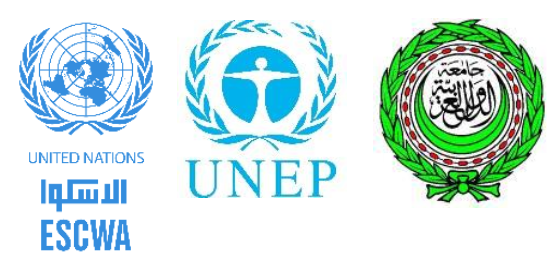Participants at the Preparatory Meeting for the Third Arab Forum on Sustainable Development (AFSD-3) and the Second UN Environment Assembly (UNEA-2) agreed to establish an Arab institutional framework for sustainable development.
The framework includes a regional follow-up and review mechanism, a financing strategy and a mechanism for technological cooperation.
Recommendations from the meeting will be submitted to AFSD-3, UNEA-2, and the High-Level Political Forum on Sustainable Development (HLPF).
 22 April 2016: Participants at the Preparatory Meeting for the Third Arab Forum on Sustainable Development (AFSD-3) and the Second UN Environment Assembly (UNEA-2) agreed to establish an Arab institutional framework for sustainable development. The framework includes a regional follow-up and review mechanism, a financing strategy and a mechanism for technological cooperation. Recommendations from the meeting will be submitted to AFSD-3, UNEA-2, and the High-Level Political Forum on Sustainable Development (HLPF).
22 April 2016: Participants at the Preparatory Meeting for the Third Arab Forum on Sustainable Development (AFSD-3) and the Second UN Environment Assembly (UNEA-2) agreed to establish an Arab institutional framework for sustainable development. The framework includes a regional follow-up and review mechanism, a financing strategy and a mechanism for technological cooperation. Recommendations from the meeting will be submitted to AFSD-3, UNEA-2, and the High-Level Political Forum on Sustainable Development (HLPF).
The UN Economic and Social Commission for Western Asia (ESCWA), the UN Environment Programme (UNEP) and the Technical Secretariat of the Council of Arab Ministers Responsible for the Environment (CAMRE) organized the meeting, which brought together representatives of the Joint Committee on Environment and Development in the Arab Region (JCEDAR) and related institutions and stakeholders. The Forum convened in Beirut, Lebanon, on 14 April 2016.
Participants discussed the Arab region’s priorities for the Sustainable Development Goals (SDGs), and considered the impact of current Arab conditions on the implementation of the 2030 Agenda. The meeting recognized that weak institutions in the Arab region contribute to environmental and natural resources challenges, and underscored the importance of strengthening principles of good governance, especially transparency and accountability, to achieve the SDGs. Participants stressed the importance of development for all and the principle of leaving no one behind, especially marginalized and vulnerable groups in the Arab region, such as refugees and internally displaced persons (IDPs), groups living under conflict or occupation, and residents of poor and rural areas.
The meeting also discussed: the principle of common but differentiated responsibility (CBDR) in implementing the SDGs; technology transfer, including of technologies to mitigate and adapt to climate change; the green economy; SDG 2 (End hunger, achieve food security and improved nutrition and promote sustainable agriculture) in situations of conflict and war; water and sanitation; and access to affordable, modern and sustainable energy. They called on the international community to fulfill commitments under SDG 17 (Strengthen the means of implementation and revitalize the global partnership for sustainable development), especially on technology transfer and mobilization of financial resources to support the least developed countries (LDCs) and middle-income countries (MICs).
On national voluntary reviews, participants welcomed Egypt and Morocco’s forthcoming voluntary national reviews, which will be presented at the 2016 HLPF. They requested the AFSD to provide technical support to Arab countries that conduct national voluntary reviews.
Participants agreed to submit a set of Arab group resolutions to the UNEA on four issues: assessing the environmental impacts of conflicts and wars and their repercussions on neighboring, refugee-hosting countries; combatting desertification; water basins; and assessing the impacts of the war on Gaza. They also called on Arab countries to support Iraq’s candidacy for the UNEA Bureau.
AFSD-3 and UNEA-2 will convene in May 2016, followed by HLPF 2016 in July. [ESCWA Press Release] [Event Website] [Outcome Document in Arabic]